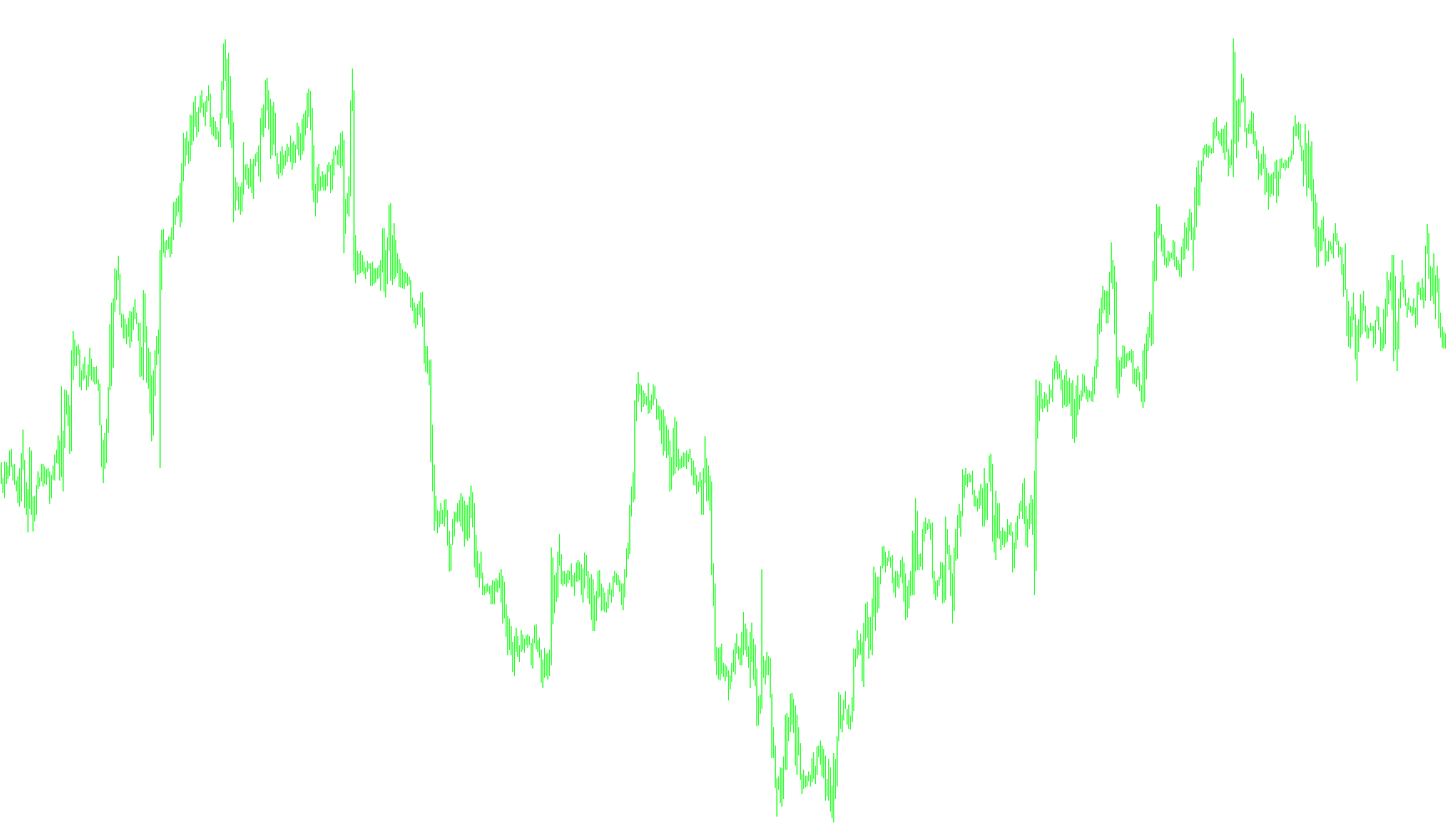/*-----------------------------+
| |
| Shared by www.Aptrafx.com |
| |
+------------------------------*/
//+--------------------------------------------------------------------+
//| TII_RLH |
//| Copyright © 2006, Robert Hill |
//| http://www.metaquotes.net/ |
//| |
//| Based on the formula developed by M. H. PEE |
//| |
//| Trend Intensity Index. |
//| |
//| TII is used to indicate the strength of the current trend in the |
//| market. The stronger the current trend, the more likely the |
//| market will continue moving in the current direction. |
//| It is recommended to enter the market during a strong trend |
//| and ride it until TII shows signs of a reversal, at which time |
//| you should abandon your position and prepare to enter in the |
//| opposite direction. |
//| Pee recommends using a major period of 60 and a minor period of 30.|
//| Assuming these setting, TII is calculated as follows. |
//| The 60 bar simple moving average (MA) is computed. |
//| The deviation between the closing price and this computed average |
//| for each of the last 30 bars is computed (CL - MA). |
//| Positive deviations (CL > MA) are summed to give SDPOS. |
//| Negative deviations (CL < MA) are summed to give SDNEG. |
//| Then, the 30 period TII is calculated as: |
//| 100 * SDPOS / (SDPOS - SDNEG). |
//| TII ranges from a lower limit of 0 to an upper limit of 100 |
//| A TII value above 50 signals an uptrend |
//| A TII value of 80 means that 80% of the total deviations are up |
//| When TII fall below 50, a downtrend is likely in place |
//| 50 represents a level that is trend-neutral |
//| The closer TII is to 100, the stronger the current uptrend |
//| The closer TII is to 0, the stronger the current downtrend |
//| |
//+--------------------------------------------------------------------+
#property copyright "Copyright © 2006, Robert Hill "
#property link "http://www.metaquotes.net/"
//---- indicator settings
#property indicator_separate_window
#property indicator_buffers 1
#property indicator_color1 Red
#property indicator_width1 2
extern int Major_Period = 60;
extern int Major_MaMode = 1; //0=sma, 1=ema, 2=smma, 3=lwma, 4=lsma
extern int Major_PriceMode = 0;//0=close, 1=open, 2=high, 3=low, 4=median(high+low)/2, 5=typical(high+low+close)/3, 6=weighted(high+low+close+close)/4
extern int Minor_Period = 30;
extern color LevelColor = Silver;
extern int BuyLevel = 20;
extern int MidLevel = 50;
extern int SellLevel = 80;
//---- buffers
double ma[];
double ma_dev[];
double tii[];
//+------------------------------------------------------------------+
//| Custom indicator initialization function |
//+------------------------------------------------------------------+
int init()
{
//---- drawing settings
IndicatorBuffers(3);
SetIndexStyle(0,DRAW_LINE);
SetIndexDrawBegin(0,Major_Period);
IndicatorDigits(MarketInfo(Symbol(),MODE_DIGITS)+2);
//---- 3 indicator buffers mapping
if(!SetIndexBuffer(0,tii) &&
!SetIndexBuffer(1,ma_dev) &&
!SetIndexBuffer(2,ma))
Print("cannot set indicator buffers!");
//---- name for DataWindow and indicator subwindow label
IndicatorShortName("TII("+Minor_Period+")");
SetLevelStyle(STYLE_DASH,1,LevelColor);
SetLevelValue(0,BuyLevel);
SetLevelValue(1,MidLevel);
SetLevelValue(2,SellLevel);
//---- initialization done
return(0);
}
//+------------------------------------------------------------------+
//| LSMA with PriceMode |
//| PrMode 0=close, 1=open, 2=high, 3=low, 4=median(high+low)/2, |
//| 5=typical(high+low+close)/3, 6=weighted(high+low+close+close)/4 |
//+------------------------------------------------------------------+
double LSMA(int Rperiod, int prMode, int shift)
{
int i;
double sum, pr;
int length;
double lengthvar;
double tmp;
double wt;
length = Rperiod;
sum = 0;
for(i = length; i >= 1 ; i--)
{
lengthvar = length + 1;
lengthvar /= 3;
tmp = 0;
switch (prMode)
{
case 0: pr = Close[length-i+shift];break;
case 1: pr = Open[length-i+shift];break;
case 2: pr = High[length-i+shift];break;
case 3: pr = Low[length-i+shift];break;
case 4: pr = (High[length-i+shift] + Low[length-i+shift])/2;break;
case 5: pr = (High[length-i+shift] + Low[length-i+shift] + Close[length-i+shift])/3;break;
case 6: pr = (High[length-i+shift] + Low[length-i+shift] + Close[length-i+shift] + Close[length-i+shift])/4;break;
}
tmp = ( i - lengthvar)*pr;
sum+=tmp;
}
wt = sum*6/(length*(length+1));
return(wt);
}
int start()
{
int i,j, limit;
double sdPos, sdNeg;
int counted_bars=IndicatorCounted();
if(counted_bars>0) counted_bars--;
limit=Bars-counted_bars;
for(i = limit; i >= 0; i--)
{
if (Major_MaMode == 4)
{
ma[i] = LSMA(Major_Period, Major_PriceMode, i);
}
else
{
ma[i] = iMA(NULL,0,Major_Period,0,Major_MaMode,Major_PriceMode,i);
}
ma_dev[i] = Close[i] - ma[i];
}
//========== COLOR CODING ===========================================
for(i = 0; i <=limit; i++)
{
sdPos = 0;
sdNeg = 0;
for (j=i;j<i+30;j++)
{
if (ma_dev[j] >= 0) sdPos = sdPos + ma_dev[j];
if (ma_dev[j] < 0) sdNeg = sdNeg + ma_dev[j];
}
tii[i] = 100 * sdPos/(sdPos - sdNeg);
}
return(0);
}
//+------------------------------------------------------------------+

Comments